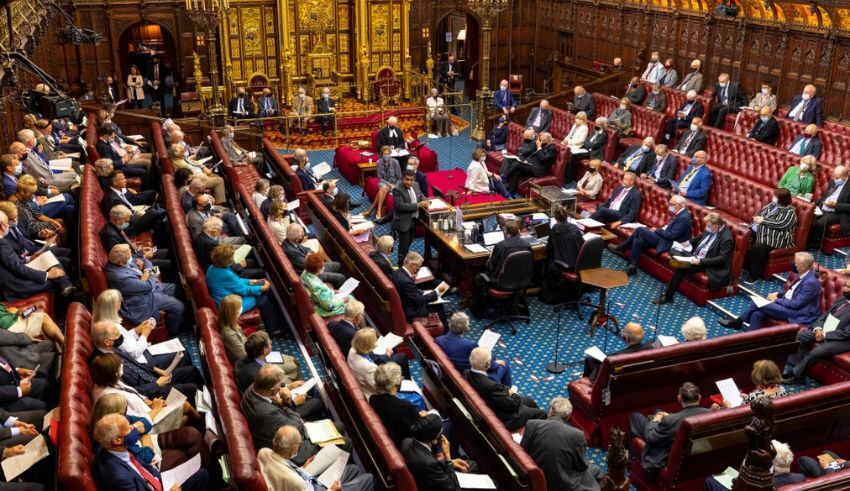
Parliament will examine a proposal to legalise assisted death for terminally sick people next week. Former Labour justice secretary Lord Falconer of Thoroton is leading the initiative and will be presenting a private member’s bill called Assisted Dying for Terminally Ill Adults Bill. This proposed law seeks to provide those less than six months to live the choice to end their life with help. The introduction of this measure emphasizes the need of legal clarity and compassion since it is situated against a background of growing public debate and interest in end-of-life decisions.
Political Support and Opposition
Sir Keir Starmer, the leader of Labour, has indicated that MPs will be let to vote on the matter based on their conscience and voiced his support of legislative change. Still, he has said that a Commons vote on the topic is probably not going to happen for at least a year. Starmer said, underlining the intricacy and sensitivity of the matter, “there will be a free vote, that remains my position”. Reflecting the very personal nature of the choice, this method lets MPs vote primarily on their own opinions instead of party lines.
Advocacy and Individual narratives
Particularly from broadcaster Dame Esther Rantzen, who at 83 years old has been diagnosed with stage four lung cancer, the cause has attracted a lot of attention. Dame Esther has been public in her support of the measure and joined Dignitas, a Switzerland assisted-dying clinic. Her engagement emphasizes the emotional and personal aspects of the argument. The narrative of Dame Esther is among several that show the pressing necessity of humane choices for people with terminal diseases. Her campaigning reminds legislators of the practical consequences of their choices, therefore giving the legislative process a human face.
Legal Environment and Issues Now Understood
In England and Wales, helping someone to take their life is illegal right now. Legalizing assisted dying, according to opponents of the proposed law, could put undue pressure on sensitive people to take early deaths under fear they would burden their loved ones. Many disability rights organizations and elder care activists who worry about possible mistreatment and the social message such a law may convey repeat these issues. On the other hand, advocates contend that the reform would give those with terminal illnesses the chance to die with dignity, on their own terms. They underline the need of autonomy and the right to make very personal choices regarding one’s own life and body.
Ethical and moral considerations
There are great ethical and moral issues about assisted death. Proponents contend that letting terminally sick people decide when and how to die will help to reduce intolerable pain and give some control during a sensitive period. They point to occasions when people suffer great suffering even with the best palliative care and contend that assisted dying presents a compassionate substitute.
Opponents, on the other hand, concern the moral ramifications of such a legislation. They bring questions regarding the dignity of life and the possible slippery slope whereby the worth of human life can be diminished. Particularly religious organizations have expressed strong concerns based on theological grounds, stressing the inherent value of life independent of its circumstances.
Past Parliamentary Debates
Westminster Hall saw an intense discussion on the matter earlier this year, with MPs from all party backgrounds presenting fervent arguments both in support of and against the proposed change. The problem is predicted to keep arousing strong emotions and causing a lot of debate among public and legislative representatives. From personal tales of suffering and loss to philosophical discussions on the nature of autonomy and compassion, the debate exposed the several points of view on assisted dying.
Foreign Views
The debate in the UK fits within a larger worldwide dialogue on assisted death. Under particular conditions, some nations—including Canada, Belgium, and the Netherlands—have passed legislation allowing assisted death. These foreign models offer insightful analysis of the possible advantages and difficulties of a law. Proponents frequently cite these cases to suggest that assisted dying can be carried out ethically and safely with the right protections.
Finish
A very divisive and emotionally charged question is raised by the possible legalization of assisted death for the chronically sick. The upcoming debate in Parliament will be widely monitored since it affects the ethical scene as well as the life of people dealing with terminal diseases. It’s interesting to see how legislators will handle the difficult moral and legal issues around this very sensitive topic as the debate moves forward. The choice will not only define the direction of end-of- life treatment in the United Kingdom but also reflect more general society ideals on life, death, and the right to choose.




